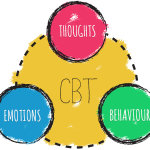Motivational Interviewing & Addiction
Therapeutic Interventions for Addiction
In most addiction treatment facilities, each client will be individually assessed. The chosen treatment plan will depend on their unique history, health, psychological condition, and personality. This includes what kind of therapeutic approach is focused on.
While Cognitive Behavioral Therapy is a prominent intervention for addiction, there are other therapeutic methods that are helpful as well. One of these is Motivational Interviewing, which can be helpful for clients who lack motivation in recovery or are overly distrusting and defiant of others.
What is Motivational Interviewing for Addiction?
Motivational Interviewing in addiction treatment attempt to inspire motivation in clients. Motivation to get better and make a true effort in recovery is a very important requirement for overcoming addiction. Many people are so beat down, tired, and hopeless by the time they go to rehab. This therapeutic technique helps lead clients away from uncertainty or doubt and towards discovering motivation to change.
The therapist will guide the client through the exploration of their feelings, helping the client to discover their own motivations to change. At the core of Motivational Interviewing are three core tenants: collaboration, evocation, and autonomy.
Therapeutic Collaboration in Addiction Treatment
Serving as support, the therapist tries to see and understand the situation from the client’s perspective. This is the collaboration aspect of Motivational Interviewing.
The therapist treats the client as the expert on their own situation.
Evocation is the attempt to help the client reach their own conclusions, goals, desires, and aspirations. This is contrary to telling them what they should do or want. The therapist listens and asks further questions, allowing the client to do most of the talking. The goal is that the client will create a dialogue and logic that leads to a desire for recovery. The client will reveal their own reasons for wanting to stay sober.
The therapist places trust and respect in the client’s capabilities. This enforces autonomy, encouraging the client to believe in themselves and to be in control of the conversation.
Client-Centered Therapy in Rehab
Motivational Interviewing is a person-centered style of therapy. Expressing and displaying empathy is extremely important for this process. Equally important is the therapist’s job to get the client to identify the inconsistencies between their goals and what they are doing. This is done by asking questions, not by being directive and pointing these inconsistencies out. Finally, the therapist will work to show the client their own strengths and capabilities—pointing out the skills that they have which are in their favor.
In this way, Motivational Interviewing is similar to Narrative Therapy—another therapeutic approach utilized to treat addiction. The client’s attention is brought to focus on their core values, their successes, their strengths, and their overall ability to recover.
Find Therapeutic Support
Most addiction treatments centers offer Motivational Interviewing as a potential therapeutic tool. If you think you or a loved one may be in need of therapeutic support to overcome an addiction, call (520) 288-8484. You can talk to someone about getting the care and support needed.
Addiction is a complicated thing and full recovery requires many layers of attention, support, and care. Asking for help is the first step to discovering the life you deserve.






